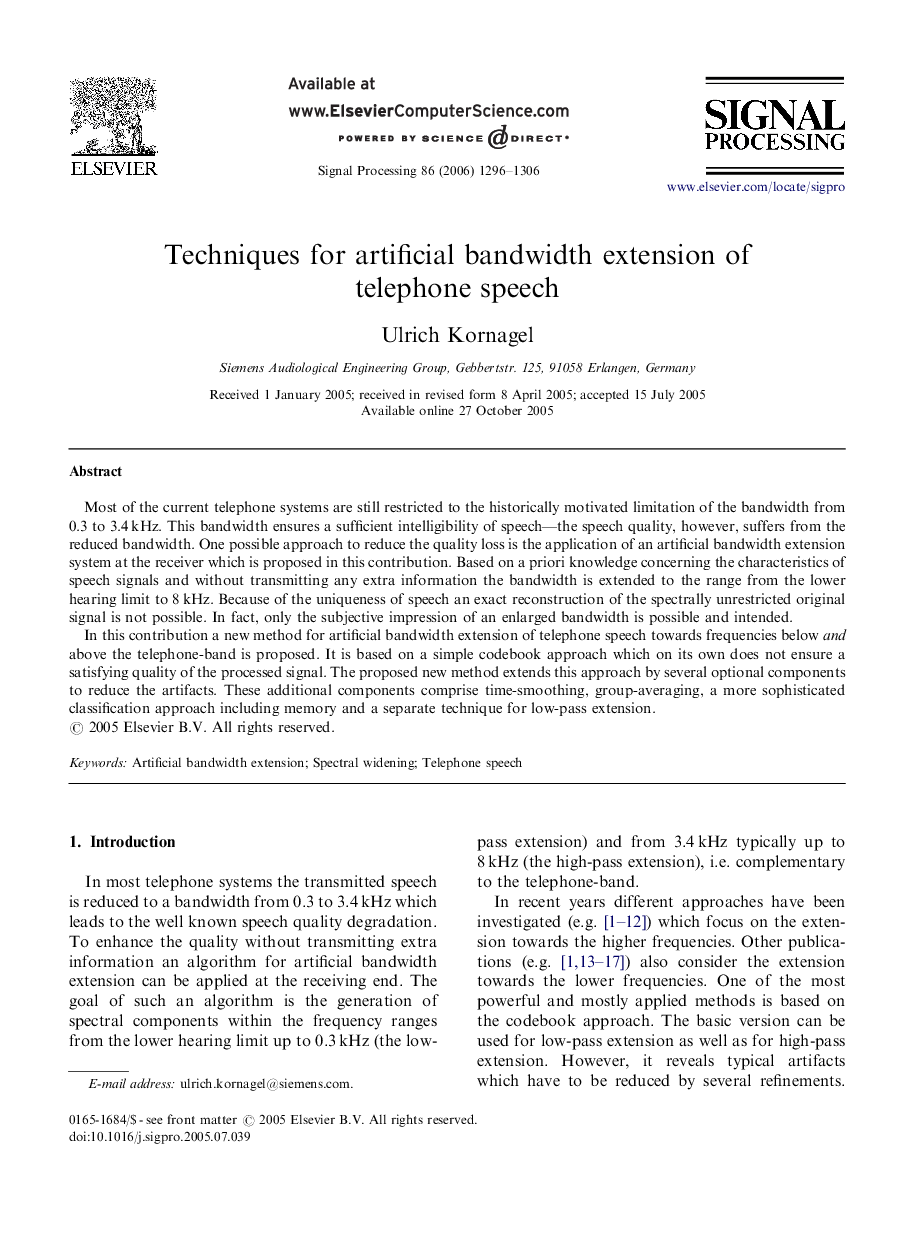| Article ID | Journal | Published Year | Pages | File Type |
|---|---|---|---|---|
| 565159 | Signal Processing | 2006 | 11 Pages |
Most of the current telephone systems are still restricted to the historically motivated limitation of the bandwidth from 0.3 to 3.4 kHz. This bandwidth ensures a sufficient intelligibility of speech—the speech quality, however, suffers from the reduced bandwidth. One possible approach to reduce the quality loss is the application of an artificial bandwidth extension system at the receiver which is proposed in this contribution. Based on a priori knowledge concerning the characteristics of speech signals and without transmitting any extra information the bandwidth is extended to the range from the lower hearing limit to 8 kHz. Because of the uniqueness of speech an exact reconstruction of the spectrally unrestricted original signal is not possible. In fact, only the subjective impression of an enlarged bandwidth is possible and intended.In this contribution a new method for artificial bandwidth extension of telephone speech towards frequencies below and above the telephone-band is proposed. It is based on a simple codebook approach which on its own does not ensure a satisfying quality of the processed signal. The proposed new method extends this approach by several optional components to reduce the artifacts. These additional components comprise time-smoothing, group-averaging, a more sophisticated classification approach including memory and a separate technique for low-pass extension.
